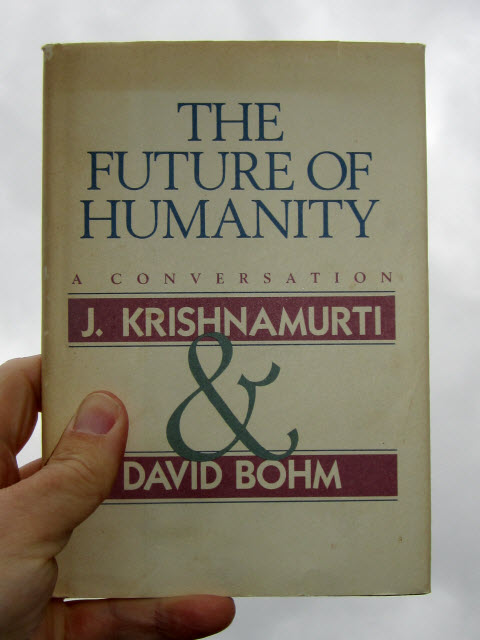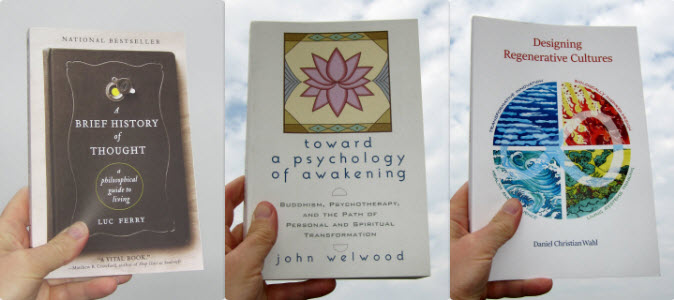This is a post in my series on organizing ”between and beyond.” Other posts are here. This is a retrospective of what has happened during the week. The purpose is to reflect on the work itself. Here is my previous retrospective. Here is my next retrospective.
What has happened? What needs to be done?
Yesterday, I published this review of The Future of Humanity: A Conversation by Jiddu Krishnamurti and David Bohm. The book was a disappointment! Not because of Bohm, but because of Krishnamurti. This was my first encounter with Krishnamurti, and I got the impression that he didn’t know what he was talking about. Those who have read this series of post on organizing “between and beyond” know that I’m deeply influenced by Bohm. Even the notion of “between and beyond” is inspired by him.1

After my review, I went back to F. David Peat’s biography Infinite Potential: The Life and Times of David Bohm to learn more about the relationship between Bohm and Krishnamurti. Here is my review of Peat’s book. Peat writes that Bohm felt that Krishnamurti didn’t give sufficient attention to the social dimension of his teachings. Those who surrounded Krishnamurti were related to him, but not to each other. Bohm also found it disturbing how Krishnamurti’s image was being inflated by those around him, and that the Indian teacher didn’t do anything to prevent it.2 Krishnamurti responded by pushing Bohm in a way that others later described as brutal. As Bohm was thrown into despair, Krishnamurti distanced himself from Bohm.3
New books
Three new books arrived this week:
- A Brief History of Thought by Luc Ferry.
- Toward a Psychology of Awakening by John Welwood.
- Designing Regenerative Cultures by Daniel Christian Wahl.

I’ve started reading A Brief History of Thought and Before Philosophy, which arrived last week. Both books provide interesting perspectives on the history of thought. I’m somewhat surprised that Luc Ferry describes philosophy not only as ‘love’ (philo) of ‘wisdom’ (sophia),4 but also as a road to ‘salvation’ by the exercise of reason – if not from death itself, then from the anxiety it causes.5 Personally, I think loving wisdom – trying to live wisely – is a perfectly valid aim in itself. I also find reason to question reason itself. I’ve come to believe that reason alone will not save us and the world. Instead, we need to bring our focus ‘upstream’ to where reason and heart may work in common.6
What was good? What can be improved?
I’m learning new things, broadening my perspectives, all the time.
I need to finish my review of Artful Leadership by Michael Jones. It’s such a great book!
Notes:
1 The notion of organizing ”between and beyond” is inspired by David Bohm and F. David Peat’s notion of the ”order between and beyond.” See Bohm and Peat, Science, Order, and Creativity (Routledge, 2010, first published 1987), p. 275.
2 F. David Peat, Infinite Potential: The Life and Times of David Bohm (Addison-Wesley, 1997), p. 284.
3 Ibid., p. 285.
4 Luc Ferry, A Brief History of Thought: A Philosophical Guide to Living (HarperCollins, 2011), p. 15.
5 Ibid., p. 6.
6 The idea of moving ‘upstream’ is from Michael Jones. See Jones, Artful Leadership: Awakening the Commons of Imagination (Pianoscapes, 2006), p. xi.
Related posts:
Organizing in between and beyond posts
Leave a Reply
You must be logged in to post a comment.